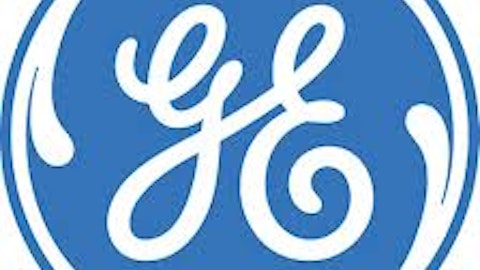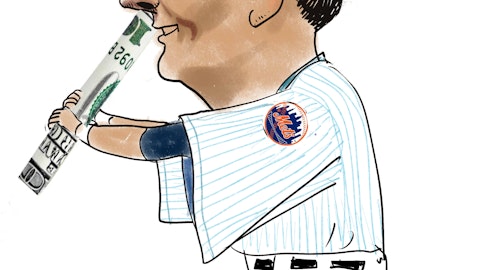When 2012 is all said and done, and investors look back, Chipotle Mexican Grill, Inc. (NYSE:CMG) will be remembered as one of the most disappointing stocks of the year. Since hitting an all-time high of $442.40 in mid April, the stock has lost 43.1%, and currently rests a sliver over the $250 mark. When shares of the iconic restaurant company were trading in the stratosphere, many armchair analysts declared that Chipotle had unlimited potential, as its otherworldly top and bottom line growth dominated the rest of its peers in the fast-casual dining space.
Many investors said, and this is a dramatization: “to heck with the valuation, Chipotle is like the Apples and Amazons of the financial world; no matter what speed bumps the company hits, its shares will always bounce back.” Before the crash, a select group of those on the blogosphere (including this author himself) warned investors to stay away from the stock because it was, what we can call a “growth trap.” Before the selloff, shares of Chipotle were trading at a 67% cash flow premium, even though operating and free cash flows had been wilting over the previous calendar year. Earnings metrics showed a similar overvaluation, and it appeared that any bearish event, most likely an earnings miss, could affect Chipotle’s stock price significantly.
Well, the worst fears of Chipotle investors have come to fruition not just once, but twice, as the company has missed Wall Street’s expectations in each of the past two quarters. In July, when Chipotle reported its second quarter results, the company saw a same store sales growth miss, posting 8% growth versus estimates of 10.2%. In the following two days of trading activity, shares fell a whopping $97.85 to $306.01, or 31.9 points in percentage terms.
In its most recent quarter, which was released after the closing bell on October 18th, worries of slowing growth were exacerbated as Chipotle posted a full-on EPS miss, as the company reported earnings of $2.27, four cents below average analyst estimates. As can probably be guessed, shares of the fast-casual restaurant chain dropped another 20.4% over the next two days of trading activity. As David Einhorn originally stated back in September when he recommended shorting the stock, Yum! Brands, Inc. (NYSE:YUM)‘s Taco Bell may have been taking away many of Chipotle’s customers with its Cantina Bell menu.
While it remains to be 100% proven exactly how Chipotle’s growth is slowing, the fact remains that it is. Consider these statistics: since the recession, the company’s earnings have historically grown by an average rate of 42.0% a year. Over the next half-decade, however, analysts are expecting Chipotle’s annual EPS growth to average 21.5%. Interestingly, Chipotle’s forward looking estimates are still above Yum! Brands (13.0%), McDonald’s Corporation (NYSE:MCD) at 9.1%, Starbucks Corporation (NASDAQ:SBUX) at 18.1%, and Jack in the Box Inc. (NASDAQ:JACK) at 13.0%, which owns chief Chipotle competitor Qdoba.
Despite its slowing growth, we would expect Chipotle’s earnings to be valued at a premium in comparison to its aforementioned peers, but like most cases of quarterly misses, the markets seem to have overreacted. Let’s use the PEG ratio to measure exactly how investors are valuing the company’s expected EPS growth. At its current market price near $250 a share, Chipotle sports a PEG ratio of 1.36. This is below the likes of Yum! Brands (1.58), McDonald’s (1.79), Starbucks (1.41), and nearly at parity with that of Jack in the Box.
When growth isn’t factored into the equation, we can also see that Chipotle’s price-to-earnings valuation is close to 30% below its five-year historical average. Now, slowing growth undoubtedly plays a role on historical P/E comparison, but the PEG ratio is a normalizing indicator, showing us that there looks to be a value play here.
Cash flow and book value metrics show a similar undervaluation, which is notable given the restaurant industry’s present penchant for booming valuations, particularly regarding the latter. Chipotle currently trades at a book value discount of 10.3% in comparison to its historical average, which is cheaper than Yum! Brands (5.0% discount), McDonald’s (14.8% premium), Starbucks (18.2% premium), and Jack in the Box (4.0% premium). It seems fair to say that in Chipotle’s case, it wouldn’t be a bad idea to buy on the dip.
Now, for any investor willing to buy into the company over the next few weeks, it’s vitally important to pay attention to quarter-ahead earnings estimates. At present, the Street is predicting that Chipotle generates a Q4 EPS of $2.10, on the back of $690 million in revenues. If these estimates hold, it would mean that Chipotle will have finished its current fiscal year with earnings of $8.90 a share, a 30.7% growth year over year.
Hedge funds that are sticking to their guns regarding Chipotle include Jim Simons, Philippe Laffont, Ken Griffin, and D.E. Shaw. With its current valuation, it’s not a reach to expect moderate appreciation over the next few months, as the markets begin to correct their overreaction to the company’s earnings miscues, and Q4 expectations are renewed. Here’s a full look at the hedge fund industry’s sentiment toward Chipotle.






